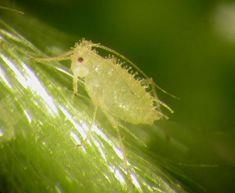
Registration has been received for a new potato insecticide that will help growers contend with what is expected to be a high pressure season for aphids.
InSyst is a fast-acting molecule containing acetamiprid, a new cyanoamidine insecticide from the neonicotinoid group of chemistry, according to Certis. The product is active against aphids carrying resistance to other forms of chemistry, with the treatment delivering control by direct contact as well as by targeting hidden pests feeding on the foliage through its systemic and translaminar action.
Certis explained that the launch of InSyst is timely due to predictions of a high risk reason for aphids, projections which have been made from data produced by the Rothamsted insect survey.
Dr Ian Denholm stressed that while the situation could still change, evidence from 12 metre high suction traps indicate that aphid populations, with virus-carrying potential, are likely to be high with numbers already building in sugar beet following the mild winter and warm spring.
Certis’ sales manager Peter Shakespeare added that while responsible use of insecticides is essential, opting for InSyst within a programme can deliver the benefits of very fast pest knockdown, long-lasting action, and a low dose of active ingredient that contributes to an overall pesticide reduction strategy and results in no detectable crop residues when used according to the product label.
“Trials show 100 percent control of the most effective virus vector, the peach potato aphid, or Myzus persicae, just three days after treatment. Other trials have shown knockdown of aphid species in as little as 20 minutes,” he said.
Treatment with InSyst should be carried out as soon as the aphid threshold is reached at a rate of 250g/ha in 200-600 litres of water, Certis explained, depending on canopy size and density. The spray should be applied as a fine to medium spray quality, up to the point of run-off. Applications while the crop is in flower are also acceptable due to the very low toxicity of InSyst to bees.



